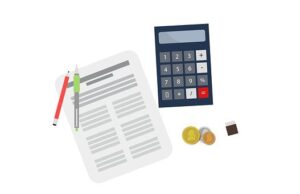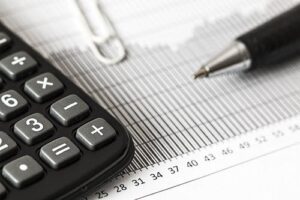A Guide To Self Employed Expenses

When you work for yourself, the last thing you want to do is to pay more tax than is necessary. The things you can claim for are termed allowable expenses and these can then be deducted from your turnover to work out how much tax you need to pay. Sounds simple enough? However, it’s not quite so straightforward and it can be complicated knowing what you can claim for and what you can’t. Here at team4 Solutions, we know that people often get it wrong if left to their own devices and try to claim for all sorts of things that are not tax deductible expenses and are not strictly related to their business. This article is a brief guide to self-employed expenses, which will help ensure you pay the right amount of tax as a sole trader – but not a penny more! So if you are interested in any tax-saving opportunities as a self employed person, read on as we shed light on some of the main business expenses you can claim for with HMRC.
Why is it important to know the expenses you can claim against?
It doesn’t matter whether you’ve been self-employed for just twelve months or longer; all sole traders are entitled to claim for allowances and expenditure relating to their business. If you are self-employed, claiming as much tax relief as possible is important for several reasons. Firstly, you could be incurring business costs and not claiming them for tax deduction. Secondly, claiming all your costs ensures that you are following HMRC guidance and they really want you to pay the exact amount. Thirdly, you will also be able to evaluate the true profit you are making from your business.
In this article, we look at the following in more detail:
- Work clothing
- Travel expenses
- Buying or leasing a car or a van for exclusive work use
- Tools and machinery
- Training
Work Clothing
If you wear clothing to perform your job exclusively, irrespective of whether it is branded or not, you can claim the purchase of it as an expense as well as its maintenance by washing.
Travel Expenses
a) Vehicle allowances
Actual costs are allowable expenses for vehicles, but only permitted for the business elements of fuel, parking, repairs, servicing, breakdown cover and insurance.
Crucially, travel between home and work is not covered or any speeding or parking fines incurred and any non-business driving costs.
b) Mileage allowances
If you do not want to claim the actual expenses of buying and running a vehicle in your business, you can use the simplified method, which is to claim business mileage. You are able to claim forty-five pence per mile for the first ten thousand business miles. Anything over this figure will be claimed at a rate of twenty-five pence per mile.
c) Train, air and taxi costs, hotels and meals
You can also claim business expenses for any other business-related travel costs, such as train, air or taxi fares for business purposes, hotel rooms, for example following an industry seminar or conference and meals during overnight business trips.

Buying or leasing a car or van for exclusive work use
a) Purchasing a car or a van
If you buy a car or a van through your business, it will be listed as a fixed asset to your company, a form of plant and machinery. As such, you will be able to claim capital allowances on the value of your purchase, reducing your taxable profit.
b) Leasing a car or a van
If you choose to lease a car rather than buy one as a self-employed person, you can opt for one of three lease options:
- Hire Purchase
- Finance Lease
- Operating Lease
Each of these methods comes with its own set of rules, so it is well worth speaking to an expert before you commit. You will want to go for the best option for your business.
Tools and machinery required to carry out your work
If your profession as a self-employed person relies on tools and/or machinery, it is possible to claim back tax on replacing and maintaining your essential equipment. You are also entitled to claim relief when you first purchase the item either through a capital allowance or as an allowable expense.
Training
Training costs relating to your trade are also tax deductible.
How team4 can help you claim your expenses correctly
This is designed as a brief guide, as all businesses are unique with differing circumstances. Tailored advice to your specific business is suggested. It is certainly in your interests to claim business expenses, but they must have been incurred wholly and exclusively for the purpose of running your business. If you are at all unsure, please get in touch with team4 on +44(0)1825 763378 or email info@team4bookkeeping.co.uk
